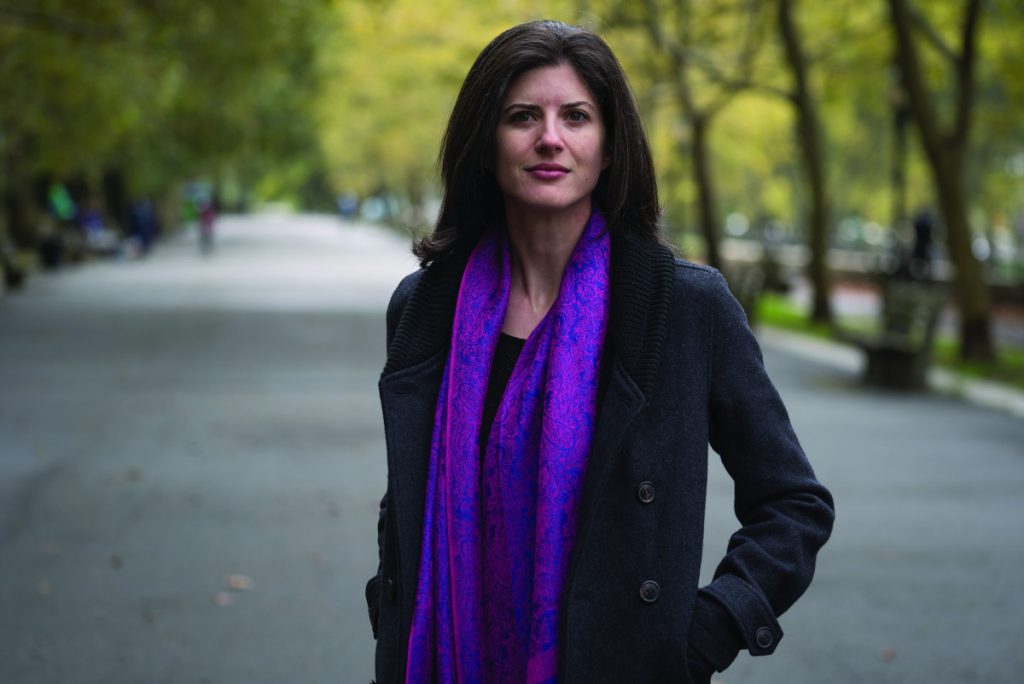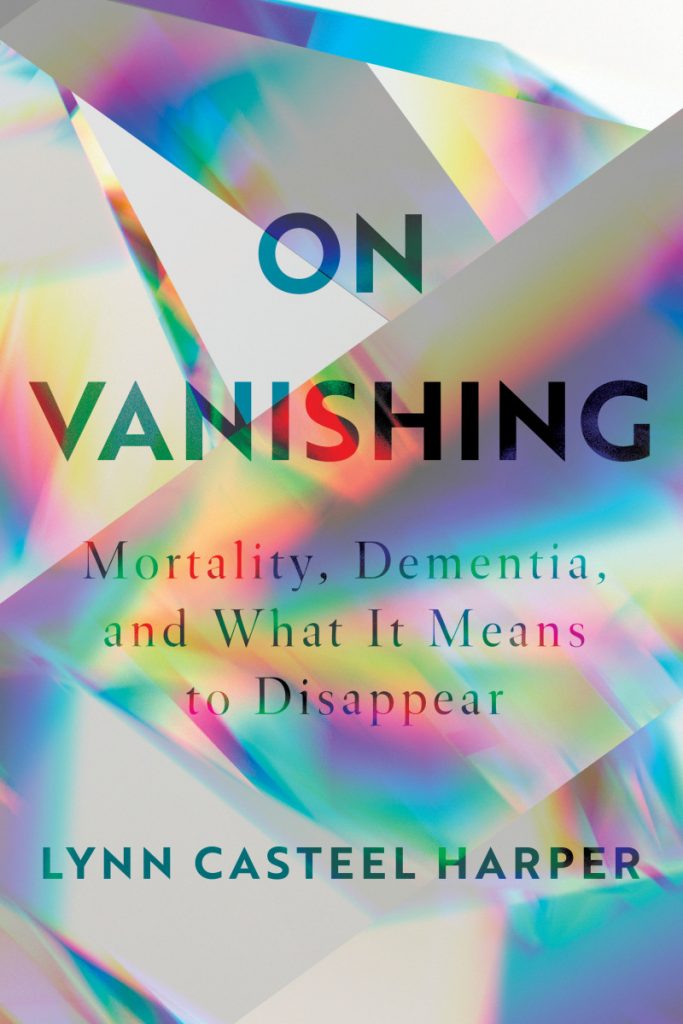SARAH VEST – STAFF WRITER

There are two kinds of death: That of the body and that of the mind. The Rev. Lynn Casteel Harper confronts this idea in her daily dealings with people with dementia and Alzheimer’s disease.
Harper is the author of Week Eight’s Chautauqua Literary and Scientific Circle book, On Vanishing: Mortality, Dementia, and What It Means to Disappear. Her work has appeared in The Kenyon Review, Catapult, HuffPost, North American Review, CALYX and the Journal of Religion and Abuse. She received the New Delta Review Nonfiction Prize in 2013 and the Orison Anthology’s 2017 Nonfiction Award.
Harper is an ordained Baptist minister and completed her master of divinity degree at Wake Forest University and her chaplaincy residency at Robert Wood Johnson University Hospital. Harper served as the nursing home chaplain at a continuing care retirement community on the New Jersey shore for seven years. She is currently the Minister of Older Adults at The Riverside Church in the City of New York and the chaplain-in-residence at Chautauqua for Week Eight.
In the introduction to her book On Vanishing, Harper writes: “Heart disease impairs circulation. Kidney disease impairs filtration. But brain disease impairs communication. By distinctly and directly impacting our abilities to relate with ourselves and others, it confronts us with the fact of our humanness: to be human is to be limited, even in our most cherished capacities.”
It is this fact of humanity that Harper deals with in her book and that she will be focusing on in her lecture at 3:30 p.m. EDT Aug. 19 on the CHQ Assembly Video Platform.
Harper has spent a great deal of her career — and an entire book — on dealing with and trying to highlight counternarratives to what people usually think about when they think about brain diseases like dementia and Alzheimer’s disease.
According to Harper, the dominant narrative is that people are “fading away … not only in certain capacities, but their most essential selves.” As people progress in dementia, they become less and less of who they are, and are thought of as shadows. Harper wants to focus on and tell stories about dementia that highlight how these people are still present.
Harper said that another phrase commonly used to describe dementia is “the death that leaves the body behind.” This kind of phrasing is deeply dehumanizing for people who have been diagnosed with brain diseases and feeds into a culture of mistreatment from caregivers.
“We know that people with dementia suffer from abuse and neglect at much higher rates than their peers. We know that people lose friends when they receive a diagnosis and disclose that diagnosis, that they suffer loneliness at higher rates, that there’s a host of negative treatments — infantilization or talking around or over people,” Harper said. “So all this leads to me asking the question: Whose soul is being sucked away?”

Harper comes from a Christian tradition that works with social justice issues, a mindset that she said has helped her in learning how to care for and work with people with dementia. She also feels that there needs to be a stronger focus on cognitive justice. She said a universal idea among Christians is that people are made in the image of God, and that that image stays with them and does not fade or disappear based on a person’s abilities. As a result, she thinks that faith is a huge resource that can be used to lift people up.
Although many things became more difficult when the world moved online, Harper said pivoting to Zoom has allowed people with dementia and their care partners to connect with the church in a way she hadn’t imagined. People who struggled to attend in person were suddenly at every service. She described one congregant with dementia whose granddaughter would set her up on Zoom and place the headphones over her ears. This weekly ritual is an example of the kind of connections that it is possible to maintain with people who have dementia.
For Harper, creating counternarratives has been a struggle from the beginning. Even years after she began her journey, creating a “patchwork quilt” of stories about people with dementia, she can find herself slipping back into the stereotypes.
“I’m always trying to hold up the mirror to reflect back on my assumptions about what makes someone fully human and what makes myself fully human,” Harper said. “This (disease) isn’t just who you are, what you can do, or what you can say, or what you can think; but who you are is also something larger, held in a larger field of compassion and relationships and love.”




